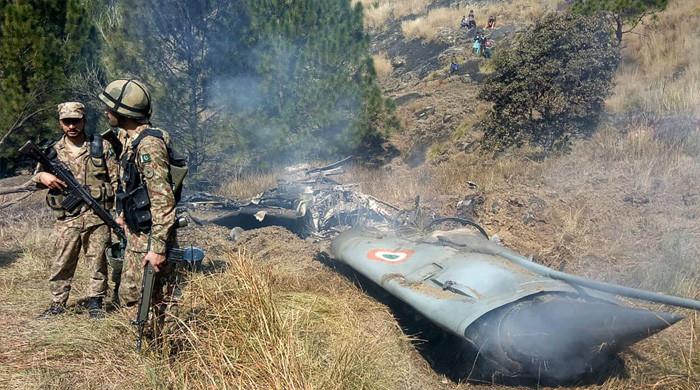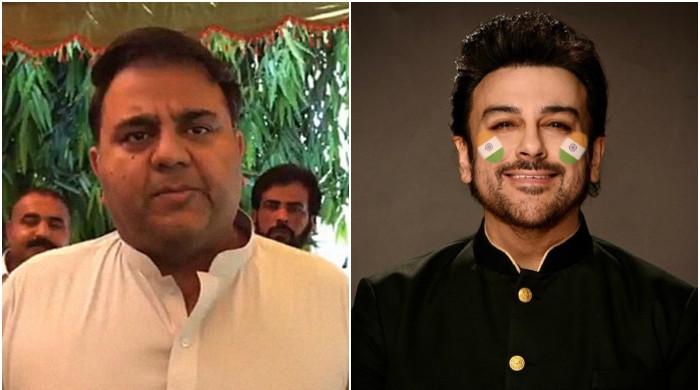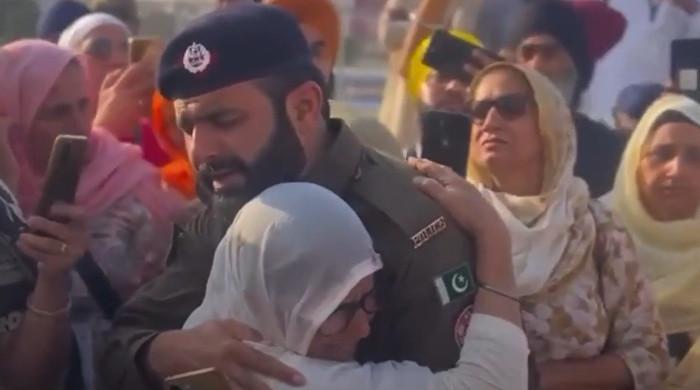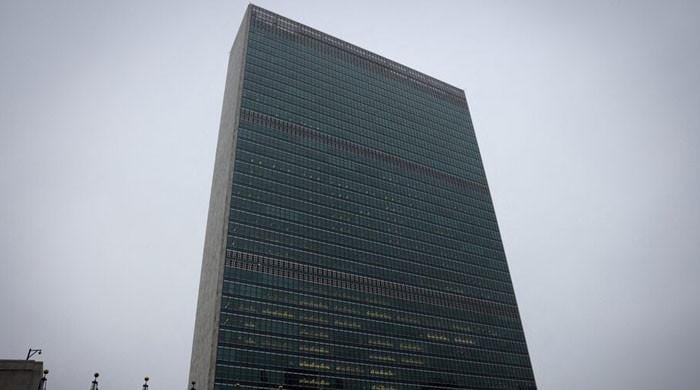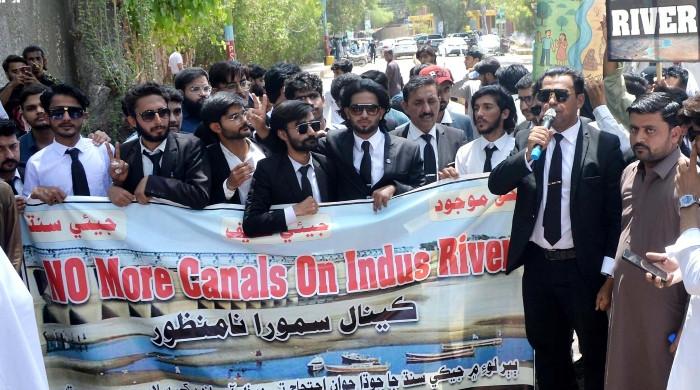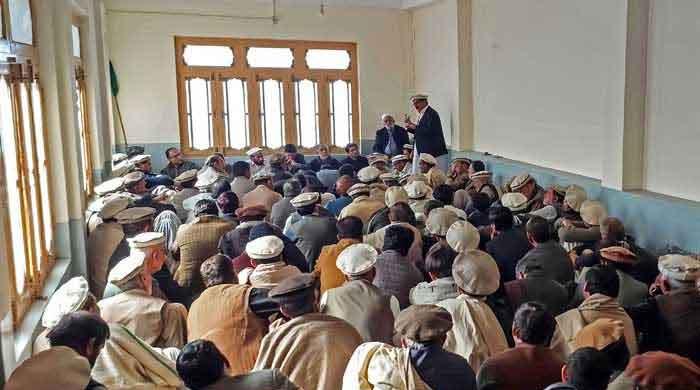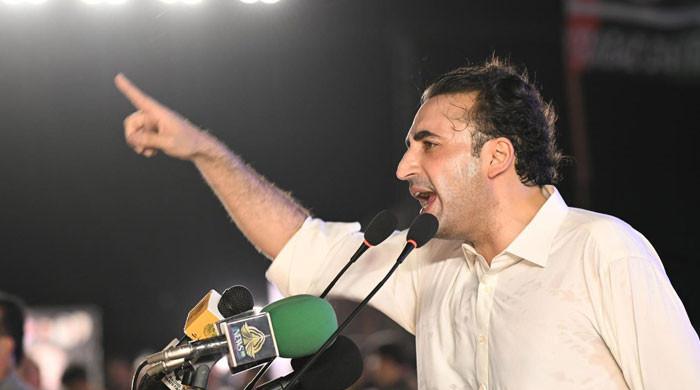Arshad Sharif murder: Killer cops return to work without any accountability
Source says five cops involved in fatal shootout are back to work and two of them have been promoted to senior ranks
August 30, 2023

LONDON/NAIROBI: The five Kenyan police officers who were involved in the killing of Pakistani journalist Arshad Sharif have quietly resumed their duties without any action taken against them, Geo News investigation has revealed.
Nine months after the killing of Sharif at a roadblock in a remote part of the East African country, the five police officers involved in the brutal killing are enjoying full police perks and their suspensions have turned out to be only a whitewash by the Kenyan authorities.
A trusted security source said the five cops involved in the fatal shootout are back to work and two of them have been promoted to senior ranks.
Kenya’s Independent Policing and Oversight Authority (IPOA), the body that is tasked with investigating the conduct of police officers, despite making a promise to give an update on Sharif’s murder within weeks has not made its findings public in over nine months.
“We shall give an update on the matter once we are done with the investigations,” IPOA said in a statement when asked about the matter by these reporters.
The authority's spokesperson refused to give a timescale and didn’t respond to the questions as to why the watchdog has taken so long and why the police officers are back at their jobs without any accountability.
It is worth noting that IPOA had already handed over its file to the Office of the Director of Public Prosecution (DPP) but it was returned back and they were asked to fill some gaps before the prosecution process kicks off.
Investigations into the murder of the journalist seems to have gone silent in the East African country, according to Geo News investigation.
It has been established that Kevin Kimuyu Mutuku, a police officer attached to the General Service Unit (GSU), who was allegedly shot at the scene of crime where Sharif was killed, went back to work immediately after he was released from hospital. He had claimed that he suffered a gunshot wound when bullets were fired from inside Sharif’s vehicle but the forensic investigation showed he was lying.
Sharif had arrived in the Kenyan capital on August 20 and died on October 23 in a shootout in which his driver Khurram Ahmad survived miraculously.
The 49-year-old had fled Pakistan in August to avoid arrest after he was slapped with several cases including sedition charges over an interview with Shahbaz Gill, a former aide of Imran Khan. After reaching Kenya’s capital Nairobi, Sharif stayed at the Riverside penthouse of businessman Waqar Ahmad who is also Khurram's brother who was driving him when he was killed.
The journalist was being driven from Ammodump Kwenia training camp, a joint which is owned by Waqar and they were heading to Nairobi County where he was staying.
A trusted Kenyan intelligence source, who spoke on the condition of anonymity, said that the National Police Service (NPS) in Kenya had gone slow on Sharif's investigation because it involved its members and the body allowed to carry out such investigations was IPOA.
“The police cannot investigate themselves and for that matter IPOA is expected to issue their findings. However, the police also have their own file on the same matter just in case,” said the sleuth who has been involved in the probe and has internal details of the matter.
Kenya’s Human Rights Commission member Martin Mavenjina said in an interview that it was already clear that the National Police Service in Kenya was not interested in investigating the matter.
He said that the investigation process had taken a lot of time which is the norm whenever the police are not interested in pursuing something to the end.
“Unfortunately, Kenya does not have a law that gives police officers timeliness whenever they are doing an investigation. When Arshad Sharif died things looked promising that the police would take action and would find facts — until they just came to a halt and everything went silent from the Kenyan side,” he said.
According to Mavenjina since the Directorate of Criminal Investigations (DCI) had a new boss he expected that the matter would be pursued in vain.
He said that it was very clear that Sharif's family might end up not getting justice because how things were being handled.
Mavenjina also said that there was a lack of good political will in assisting Sharif's family get justice.
“We have already learnt that the deceased was an outspoken journalist. He was loved and hated on equal measure. If there was a positive political goodwill then automatically the investigations by now could have been concluded,” he said.
It has also emerged that Waqar and Khurram's family had demanded that their motor vehicle, with the registration number KDG 200M, in which the journalist was killed be returned to them.
A family member based in Kenya shared that the process of getting the Toyota Landcruiser back was already at an advanced stage.
“In a matter of time the family will be handed back its vehicle because they have already reached out to the officers in charge of Kiserian police station where the vehicle has been parked ever since the incident took place,” said the family member who spoke on the condition of anonymity due to the sensitivity of the matter.
It has also been established that the police also conducted a parallel investigation on the same incident but the findings are yet to be made public.
“The police investigations are on hold for now,” Kennedy Kirwai, the investigating officer in the case, said.
To pursue the case in Pakistan, Sharif’s family has instructed the former Islamabad High Court judge Shaukat Siddiqui to take up their case.
The advocate said that even though Kenya is a friendly country for Pakistan but the Kenyan authorities did not cooperate in the investigation of the journalist's murder.
“I have no doubt in my mind that Kenyan Police were privy to this planned murder. It is so painful for the family of Arshad Sharif that even those officials who played the role of hired assassins have been let free and brought back to their ranks. Unfortunately, due to non-cooperation and having over the two suspects of Pakistani origin, investigation of the case has badly been jeopardised. In my opinion, now is the time for the Govt of Pakistan to take up the matter with the United Nations (UN)," said Siddiqui.
Both Khurram and Waqar have denied any involvement in Sharif’s murder. They remain in Kenya and have not returned to Pakistan ever since the murder took place.
Caretaker Prime Minister Anwaar-ul-Haq Kakar will visit Kenya next month at the invitation of Kenyan President Dr William Samoei Ruto. He will be accompanied by Caretaker Foreign Minister Jalil Abbas Jilani and other cabinet members and advisors.





